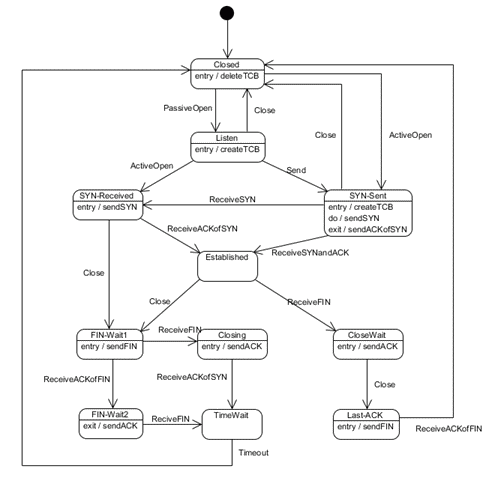Consider the following program.
static void
handle_connection(int connection_fd)
{
char id[4];
int i, index, n;
read(connection_fd, id, 3);
id[3] = '\0';
index = get_index(id);
if (index < 0)
{
write(connection_fd, "No Such Course", 15);
}
else
{
n = lines[index];
for (i=0; i<n; i++)
{
write(connection_fd, description[index][i], 70);
write(connection_fd, "\n", 1);
}
}
close(connection_fd);
}
int main(void)
{
int connection_fd, listening_fd;
int pid;
struct sockaddr_in address;
memset(&address, 0, sizeof(address));
address.sin_family = AF_INET;
address.sin_port = htons(22801);
address.sin_addr.s_addr = htonl(INADDR_ANY);
listening_fd = socket(AF_INET, SOCK_STREAM, 0);
bind(listening_fd, (struct sockaddr *)&address, sizeof(struct sockaddr));
listen(listening_fd, 0);
while (1)
{
connection_fd = accept(listening_fd, NULL, NULL);
handle_connection(connection_fd);
}
return 0;
}
-
Is this a client or a server (at the application layer)?
-
Rewrite the above program so that it handles each connection in
its own process.
-
Rewrite the above program so that it handles each connection in
its own thread. (Note: You must use a wrapper for the
handle_connection() function. That is, you must not
change the signature of the handle_connection()
function.)

